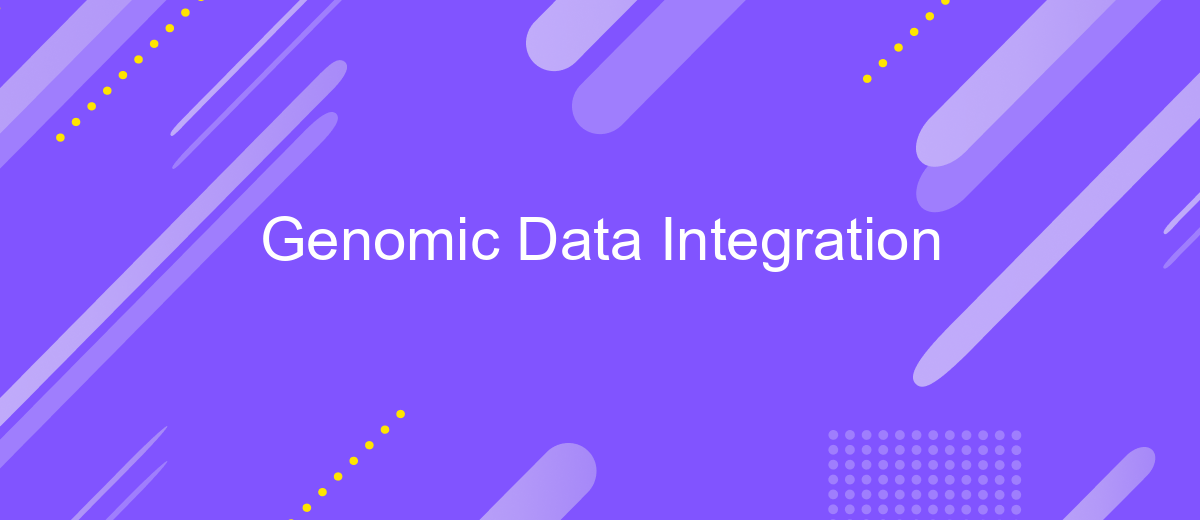Genomic Data Integration
Genomic data integration is a critical field that combines diverse datasets to provide comprehensive insights into genetic mechanisms and their implications for health and disease. By merging information from various genomic sources, researchers can uncover complex interactions and identify potential therapeutic targets, paving the way for personalized medicine and advanced biomedical research. This article explores the methodologies, challenges, and future directions in genomic data integration.
Genomic Data Integration
Genomic data integration is crucial for comprehensive biological insights. It involves combining data from various genomic sources to create a cohesive dataset that can be analyzed more effectively. This process helps in identifying complex genetic interactions and understanding the underlying mechanisms of diseases.
- Data Standardization: Ensuring data from different sources follows a common format.
- Data Cleaning: Removing errors and inconsistencies in the data.
- Data Transformation: Converting data into a suitable format for analysis.
- Data Merging: Combining datasets from multiple sources.
Tools like ApiX-Drive can simplify genomic data integration by automating the data merging process. This service allows users to connect various data sources and set up automated workflows, ensuring seamless and efficient data integration. By leveraging such tools, researchers can focus more on analysis and less on data preparation, accelerating the discovery of new genetic insights.
Introduction

Genomic data integration is a critical process in modern bioinformatics, enabling the combination of diverse datasets to provide a comprehensive view of genomic information. By integrating data from various sources, such as sequencing technologies, gene expression profiles, and epigenetic modifications, researchers can uncover complex biological relationships and gain deeper insights into genetic functions and disease mechanisms. This holistic approach is essential for advancing personalized medicine, drug discovery, and understanding evolutionary biology.
Effective genomic data integration requires sophisticated tools and platforms to manage and harmonize disparate datasets. Services like ApiX-Drive facilitate this process by offering seamless integration solutions that connect different data sources and automate workflows. ApiX-Drive's user-friendly interface and robust functionality allow researchers to streamline data integration, reducing manual effort and minimizing errors. By leveraging such services, scientists can focus more on data analysis and interpretation, ultimately accelerating the pace of genomic research and discovery.
Methods for Integrating Genomic Data

Integrating genomic data from various sources is essential for comprehensive analysis and interpretation. Several methodologies can be employed to achieve this integration effectively.
- Data Normalization: This involves transforming different datasets to a common scale or format, ensuring consistency across the data.
- Data Harmonization: Standardizing data elements, such as gene identifiers and variant annotations, to ensure they are comparable across datasets.
- API Integration: Utilizing APIs to automatically fetch and integrate data from various genomic databases. Tools like ApiX-Drive can facilitate this process by connecting different data sources seamlessly.
- Machine Learning Algorithms: Applying machine learning techniques to identify patterns and correlations across integrated datasets, enhancing the predictive power of genomic studies.
By employing these methods, researchers can ensure that genomic data from disparate sources is integrated in a coherent and meaningful way, thereby enhancing the accuracy and reliability of their analyses. Utilizing services like ApiX-Drive can further streamline the integration process, making it more efficient and less error-prone.
Challenges and Opportunities

Genomic data integration presents a myriad of challenges and opportunities. One of the primary challenges is the sheer volume and complexity of genomic data, which requires robust computational resources and sophisticated algorithms to process and analyze. Additionally, ensuring data privacy and security is paramount, given the sensitive nature of genetic information.
Despite these challenges, there are significant opportunities in the field. Integrating diverse genomic datasets can lead to breakthroughs in personalized medicine, enabling more accurate diagnoses and tailored treatments. Furthermore, advancements in technology and bioinformatics tools are making it increasingly feasible to integrate and interpret complex genomic data.
- Improved data processing algorithms
- Enhanced privacy and security measures
- Advancements in personalized medicine
- Utilization of integration services like ApiX-Drive
Services like ApiX-Drive can play a crucial role in streamlining the integration process by automating data transfers and ensuring seamless connectivity between different genomic data sources. This not only enhances efficiency but also reduces the potential for human error, making it easier for researchers and clinicians to leverage integrated genomic data for groundbreaking discoveries.


Conclusion
The integration of genomic data presents a transformative opportunity to advance our understanding of complex biological systems and improve healthcare outcomes. By combining diverse datasets, researchers can uncover novel insights into genetic variations, disease mechanisms, and potential therapeutic targets. This comprehensive approach allows for a more holistic view of genomics, facilitating personalized medicine and precision healthcare.
However, the integration process is not without its challenges. Ensuring data compatibility, managing large volumes of information, and maintaining data integrity are critical issues that must be addressed. Tools like ApiX-Drive can streamline these processes by automating data integration and enhancing interoperability between various platforms. By leveraging such solutions, researchers and clinicians can focus on deriving meaningful insights rather than getting bogged down by technical hurdles. Ultimately, the successful integration of genomic data holds immense promise for advancing scientific discovery and improving patient care.
FAQ
What is genomic data integration?
Why is genomic data integration important?
What challenges are associated with genomic data integration?
How can automation tools help in genomic data integration?
What is ApiX-Drive, and how can it assist in genomic data integration?
Apix-Drive will help optimize business processes, save you from a lot of routine tasks and unnecessary costs for automation, attracting additional specialists. Try setting up a free test connection with ApiX-Drive and see for yourself. Now you have to think about where to invest the freed time and money!

